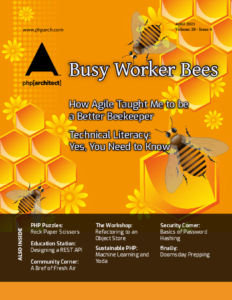In February 2021, I was listening to an online session promoting opportunities for women in technical leadership. Encouraging women to work in technical fields is excellent. Having more women leading technical teams would be great. We are regularly outnumbered in meetings and on technical teams. I am highly in favor of increasing the number of women on teams, as is McKinsey. Unfortunately, we still struggle with being represented. The speaker addressed the various roles necessary for project success and how we can integrate the concepts of leadership and teamwork. She went on to point out that many project roles do not require an understanding of the technology because they… She continued. I stopped listening.
Read about how I apply Agile principles from my work as a software architect to my backyard beekeeping hobby and side hustle. We’ve often heard how important bees are to our existence on the planet and how we humans can make an impact. I do not know if I will change the world, but I am changing my community and family and friends. When I started beekeeping, there was an overwhelming amount of information to try and figure out. To feel like I had a chance of succeeding as a beekeeper, I decided to approach it like I approach software development with an agile mindset. I constantly learn, set objectives, listen, review results, brainstorm, problem-solve, and try again.
This month, we have a try at writing a function to play the hand gesture game Rock Paper Scissors. It serves as an example of a single function that takes in a distinct set of inputs to return an output based on pre-defined rules.
APIs are a matter of life on the modern web. Modern web applications are no longer tasked with just rendering a web page. Our applications need to support various native client applications, or our applications may need to expose data to users. Developers face an increasing need to supply APIs as part of applications. As we mentioned in last month’s article, “APIs of the World,” there are many different ways we can build those APIs.
Welcome to the third installment of our containerization journey. Last month we covered running our application locally in Docker containers replacing our pre-existing development virtual machine. We used Laravel Sail to scaffold our development environment with Docker Compose. This month we’re going to look at a real-world application running on a traditional Linux Virtual Private Server with PHP 7.4, MySQL, Redis, and Apache. Before we can dive too far into containers, we need to get a looming task out of the way.
When you encounter extremely costly errors, take steps to prevent the error from happening in the future. The earlier we catch an error, the less expensive it is to fix. Here we discuss two costly situations: a typo in an if statement and upcoming PHP 8 breaking changes.
Every web application that allows users to authenticate needs to ensure their users’ credentials are afforded the best protection possible. Conventionally, this is done by storing only the hash of a password rather than the password itself. Luckily, password hashing in PHP is secure, safe, and remarkably straightforward to implement.
This month, we sit down and have a conversation with Matthieu Napoli. About four years ago, Matthieu saw a gap in the emerging serverless architectures and PHP. When Amazon added custom runtime support in late 2018, he decided to address it, creating the bref project. Bref lowers the bar on complexity to allow you to take advantage of a serverless environment.
Thanks to the pandemic, doomsday prepping has gone mainstream. Many think this is a new philosophy that is gaining popularity, but it has long been at the heart of the tech world.




Leave a comment
Use the form below to leave a comment: